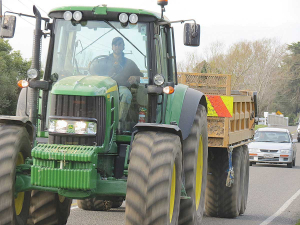Visa changes bring fresh woes
Rural Contractors NZ says members are frustrated at having to work through more layers to get visas approved for skilled seasonal machinery operators ahead of the imminent season start. Andrew Olsen comments.
 NZ rural contractors bring in overseas operators every spring from Europe, UK and the US to supplement local operators in harvesting crops and silage.
NZ rural contractors bring in overseas operators every spring from Europe, UK and the US to supplement local operators in harvesting crops and silage.
A retired Northland farmer and machinery driver says rural contractors must take some blame for the current shortage of skilled operators.
An estimated 28 million tonnes of crop worth $110 million will be at risk if overseas machinery operators are not allowed into the country, according to a survey by Rural Contractors of NZ.
The Bay of Island farmer, who preferred his name not to be used with this article, says contractors should stop moaning and reflect on what they have done to encourage and train local operators.
“These contractors want to pay minimum hourly rates and expect staff to work over a standard 13-hour day as the crop has to be harvested,” he told Rural News.
“I am available but I am not succumbing to slave labour or feeling guilty for asking for a fair and reasonable pay rate.”
Rural Contractors NZ executive director Roger Parton says if contractors charge farmers more, they end up looking for cheaper contractors.
Parton says recruiting and training young people for driving jobs in agriculture hasn’t been easy.
“Working in rural areas doesn’t appeal to young people; there is no broadband, they can’t use their phones and there’s no corner dairy for them to buy their lunch.”
Buying or building a rural or semi-rural property? Make sure you know where the wastewater goes, says Environment Canterbury.
With collars on more than seven million cows worldwide, Nedap says its standalone launch into New Zealand represents world-leading, reliable and proven smart technology solutions for dairy farmers.
The Meat Industry Association (MIA) is once again looking for game-changing ideas for New Zealand's red meat processing and exporting sector.
Environment Southland is inviting feedback on two bylaws that play a critical role in safeguarding the region's waterways and ensuring the safety of the local community.
While the North Island is inundated with rain, Southland is facing receding water levels as warm weather and lack of rainfall continues.
Entries have opened for the 2026 Fieldays Innovation Awards.